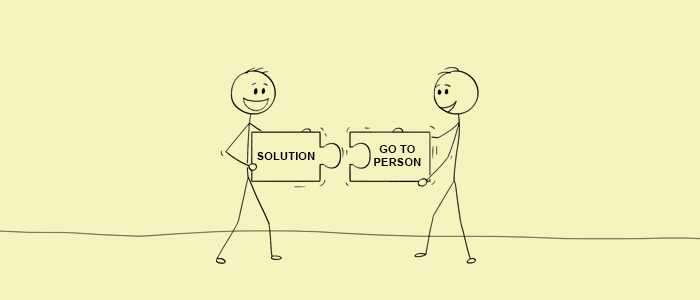Another Moment in London
London makes me think. Not just about logistics or life goals. But about the impossible.

I used to believe that being useful was the ultimate goal. To be the go-to person at work, the problem solver, the one who fixes things, keeps everything running smoothly, and can be relied on in a crunch. And let’s be honest, it does feel good. Who wouldn’t want to be known as indispensable?
But here’s the thing: usefulness has a shelf life.
In a world that’s constantly evolving, especially in technology, being useful is not enough. It’s easy to fall into the trap of thinking that usefulness equals long-term relevance, but the truth is, it doesn’t. Usefulness, while important, is often limited to the here and now. The bigger question is, are you valuable?
Think about it. Being the go-to person means you’re excellent at keeping the ship steady, but does it position you as the person who can navigate the ship into uncharted waters? Often, when you become indispensable in your current role, it can actually make it harder for others to see you as someone ready for the next step, ready to lead.
Why? Because the organization values your ability to keep things running. Your reliability becomes your brand, and while that’s not a bad thing, it can unintentionally box you in. You might find yourself stuck, overburdened with tasks that are urgent but not strategic, while others are entrusted with shaping the future of the company.
Here’s the harsh truth: usefulness can turn into stagnation. It’s easy to become so focused on solving today’s problems that you don’t position yourself for tomorrow’s opportunities. And when new technologies, new faces, or new strategies emerge, what happens to you?
This is where the idea of being valuable comes in. Value goes beyond solving immediate problems; it’s about creating a lasting impact. It’s about asking bigger questions, identifying opportunities, and helping others grow along the way.
What does it mean to be valuable? It means being the person who understands what the organization truly needs, not just today, but in the future. It means asking questions like:
Valuable people don’t just execute; they innovate. They think strategically. They focus on the bigger picture, and they’re willing to let go of tasks that others can handle to focus on work that moves the needle.
Here’s the paradox: overachieving in a narrow scope can sometimes hold you back. If you’re too focused on excelling at what you do now, you might miss the chance to prepare for what’s next. The skills that got you here might not be the ones that will carry you forward.
This doesn’t mean abandoning reliability or hard work. It means balancing execution with strategic thinking. Build systems that empower others to take on what you’ve mastered, freeing yourself to explore new opportunities. That’s what I started doing this week, and honestly, it feels good, liberating, even.
Organizations rely on a mix of B-players and A-players. B-players are dependable, they keep the machine running. A-players, on the other hand, are the innovators, the ones who drive change, set the vision, and push boundaries. They’re the ones shaping the future.
Making the leap from being useful to being valuable, becoming an A-player, requires intention. Recognize the difference between staying busy and making an impact. Ask yourself: Am I just keeping things afloat, or am I creating lasting value? Seek guidance from leaders you admire. Ask them how they define value in the organization. Then challenge yourself to grow, learn, and see things differently.
Here’s the paradoxical truth: to become truly valuable, you must make others useful. Train your replacement, share your knowledge, and create systems that ensure your work continues seamlessly without you. This isn’t about making yourself irrelevant; it’s about proving that your value extends beyond your immediate tasks.
But let’s be honest, this is hard. Many of us were raised to guard information and knowledge, to hoard it as a source of power. Remember school? You were taught to hide your work during exams, punished if someone managed to copy it. That mindset lingers, but it has no place in the workplace. Organizations thrive on the free flow of information, collaboration, and shared expertise. Becoming valuable means being the conduit through which knowledge flows, freely, openly, and effectively.
So, what does it take to stay valuable in the long run?
It’s not just about working harder or even smarter. It’s about being intentional, thinking strategically, and continually evolving. It’s about being the person who doesn’t just adapt to change but drives it.
Reflecting on my journey, I’ve realized that this isn’t easy. It takes courage to let go of what’s familiar and comfortable, to move from being indispensable in one role to creating a broader, lasting impact. That’s the path to growth, leadership, and lasting relevance.
Above all, I’ve come to understand that none of this is possible without grace, the grace to learn, to grow, and to trust the process, believing that it’s leading somewhere meaningful.
Now, I’ll leave you with a question: Are you useful, or are you valuable? What’s your next step? It’s okay if you don’t have all the answers yet. But start thinking about it now. Otherwise, you may find yourself in the same role for a decade, only to be sidelined when the company decides to “restructure” for the sake of strategic priorities. Don’t let that be your story.
Note: Doing all of these doesn’t still change the fact that, everyone is dispensable in a workplace. Just that, some are harder to let go than others.